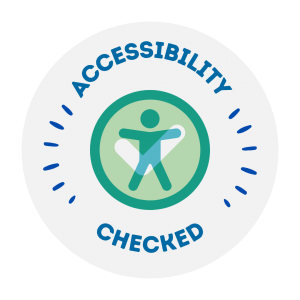All About Baby Teeth
When your baby is between 4 and 7 months old, expect to see signs of teething. The process of erupting teeth may cause him resentment and restlessness. To grow in place, baby teeth have to open the gums and come out, which can cause discomfort to the baby.
Children usually start teething at 3 months of age, but in some children the onset is delayed, starting at 12 to 14 months of age. In very rare cases, a baby may be born with baby teeth.
Awareness of the signs of teething helps you to take appropriate action if you see it in your baby.
Common Symptoms of Teething
When the process of teething begins in the early months of a baby’s life, first expect the front tooth to appear, and often from about 5 days before the tooth appears. Common symptoms of teething in infants include:
Increased bites
By biting a toy or even your fingers, the baby reduces the pressure pain he feels on his gums.
Increase in sucking rate
Like biting, sucking helps the baby feel less pain from the pressure on the gums when the teeth come out.
Decreased appetite
The child refuses to eat or drink because of pain in his mouth and teeth.
Increased cases of salivation
One of the common symptoms of tooth extraction is increased saliva and runny mouth.
Inflammation of the skin and pimples around the mouth
Excessive runny mouth causes itching, tenderness, and redness of the skin around the mouth, chin, and cheeks. As a result, it is important to keep an eye on your baby and clean the saliva that comes out of his mouth. Of course, be careful that too much cleaning of the face can cause the skin to wear out and damage its skin.
Swollen gums
Redness, swelling, and pain in the gums caused by the gums splitting and the teeth coming out is another symptom of tooth extraction.
Pull the corners
This may seem like an unusual sign of teething, but sometimes babies pull their ears to reduce the pain of their gums, or they may rub their chin and cheeks.
Bad sleep and insomnia
Discomfort caused by pain and swelling of the gums prevents the baby from sleeping comfortably during the day or during the day (snoozing).
bad temper
Do not be surprised if your child becomes sensitive and irritable. Gum injuries caused by a protruding tooth can cause discomfort and a bad mood. Try to distract the child by holding him or her in your arms and caressing him to calm him down.
Teething fever
In a child who is teething, it is possible that his body temperature will rise slightly, which is called teething fever. However, in cases of real fever (due to illness), the body temperature will be more than 38 degrees, which is a sign of illness or infection. Be sure to see a specialist if your child is restless and has a prolonged rise in body temperature, a temperature above 38 degrees or other symptoms of the disease.
Symptoms that are not a sign of teething
If your child has diarrhea, fever, or runny nose, do not consider these symptoms as symptoms of teething and do not ignore them, especially if these symptoms are observed for more than 24 hours.
Although many parents relate these symptoms directly to teething, there is no scientific evidence to support this. Experts in this field, especially the American Academy of Pediatrics, do not consider fever or diarrhea to be common symptoms of teething.
The reason why some children get diarrhea and fever during teething is that they often put various objects in their mouth and rub them on the gums to relieve gum pain. This can cause germs and contamination to enter his mouth and make him sick.
If you see a body temperature of more than 38 degrees Celsius with symptoms such as lethargy, anorexia, cough, vomiting and diarrhea in the child, be sure to see a pediatrician.
Cases such as tingling and prolonged excuses or the presence of pimples and skin irritations in the body are not considered as symptoms of tooth extraction and if observed, be sure to see a specialist.
The stages and timing of teething in each child are different. Do not worry too much if the teeth do not grow exactly according to the recommended schedule because each child has his own physical condition and growth.
If your baby’s teething is delayed or slow, but his bones, skin and hair are growing normally, there is no need to worry. But if your child is 18 months old and still has no signs of teething, talk to your doctor.




